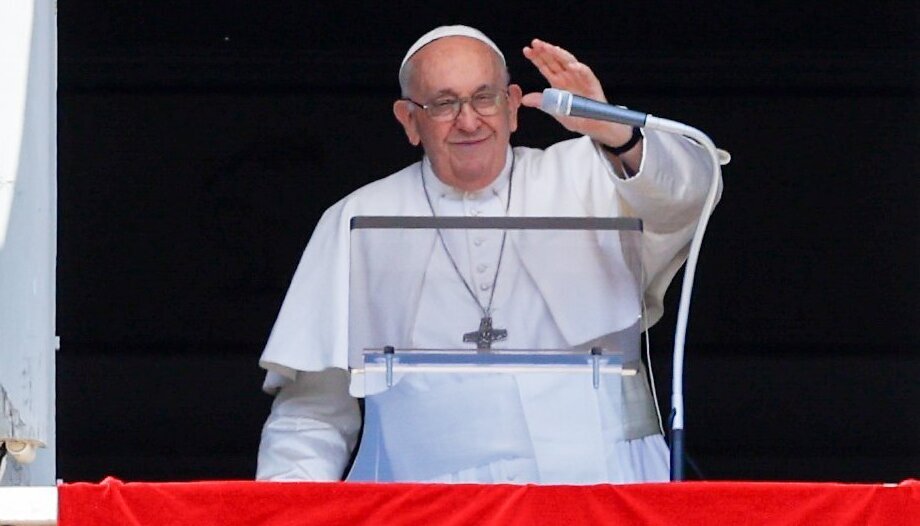"On our journey to rediscover our passion for proclaiming the Gospel, we look today to the Americas. Here evangelization has an ever-living source: Guadalupe"The Holy Father began his catechesis on the passion to evangelize, resumed after the break due to the feast of the Assumption of the Blessed Virgin Mary.
"Certainly, the Gospel had already arrived there before those apparitions", continued the Papabut "unfortunately it had been accompanied by worldly interests, instead of the path of inculturation, disrespecting the indigenous peoples".
In Mexico -as in Lourdes and Fatima- "In Mexico -as in Lourdes and Fatima- "In Mexico -as in Lourdes and Fatima- Mary appeared to a humble and simple person, to an Indian whose name was Juan DiegoIn this way, she made her message reach all the faithful People of God. She proclaims Jesus in the way of inculturation, that is, by means of the language and culture of the indigenous people, and with her maternal closeness she manifests to all her children the love and consolation of her Immaculate Heart", the Roman Pontiff emphasized in the Audience of today.
In this regard, the Pope emphasized that "Our Lady of Guadalupe appears dressed in the clothing of the natives, speaks their language, welcomes and loves the local culture: she is Mother and under her mantle all children find a place".
As for St. Juan Diego, Francis emphasized that "he was a humble person, an Indian of the people: on him rested the gaze of God, who loves to work miracles through the little ones. Juan Diego had already come to faith as an adult and married. In December 1531 he was about 55 years old. While he was on his way, he saw the Mother of God on a hill, who tenderly called him 'my beloved little son Juanito'. He then sent him to the bishop to ask him to build a temple in the place where she had appeared. Juan Diego comes with the generosity of his pure heart, but he has to wait a long time".
"Mothers and grandmothers, the first announcers".
Francis made an aside at this point to remind grandmothers and mothers of the transmission of the faith. "In Mary, God became flesh and, through Mary, continues to become incarnate in the life of peoples. Our Lady proclaims God in the most appropriate language, the mother tongue. Yes, the Gospel is transmitted in the mother tongue. And I want to thank so many mothers and grandmothers who pass on the faith to their children and grandchildren, so that mothers and grandmothers are the first heralds of the Gospel, for their children and grandchildren," the Pope said.
The Holy Father continued: "And she communicates, as Mary shows, in simplicity: Our Lady always chooses the simple, on the hill of Tepeyac in Mexico, as in Lourdes and Fatima: speaking to them, she speaks to each one, in a language suitable for all, understandable, like that of Jesus".
"Suffer wrongs with patience."
The Pope then focused on the difficulties encountered by the Indian St. Juan Diego, "who did not find it easy to be the Virgin's messenger; he had to face misunderstandings, difficulties and unforeseen events. This teaches us that to proclaim the Gospel it is not enough to bear witness to the good, but sometimes also to know how to suffer evils, with patience and constancy, without fear of conflicts," Francis stressed in the catechesis. "In those difficult moments, let us invoke Mary, our Mother, who always helps us, encourages us and guides us towards God."
The Pope recalled that the bishop did not believe in the apparition, and that Our Lady consoled him and asked him to try again. "In spite of zeal, the unexpected comes, sometimes from the Church herself. In announcing, in fact, it is not enough to bear witness to the good, it is necessary to know how to bear evil," the Pope said. "Even today, in so many places, inculturating the Gospel and evangelizing cultures requires perseverance and patience, we must not fear conflict, we must not be discouraged."
"Marian Shrines: Our Lady listens to us".
"Here is God's surprise: when there is will and obedience, He is able to accomplish something.
unexpected, in times and ways that we cannot foresee. And this is how the sanctuary asked by Our Lady", the Pope pointed out.
The Holy Father Francis concluded with a reference to Marian shrines. "Juan Diego leaves everything and, with the permission of the bishop, dedicates his life to the shrine. He welcomes pilgrims and evangelizes them. This is what happens in Marian shrines, the destination of pilgrimages and places of proclamation, where everyone feels at home and experiences a homesickness, a longing for Heaven. There, faith is welcomed in a simple and genuine, popular way, and the Virgin, as she said to Juan Diego, hears our cries and heals our pains".
"We need to go to these oases of consolation and mercy," the Pope encouraged, "where faith is expressed in the mother tongue, where the mother tongue is spoken, where the fatigues of life are placed in the arms of the Virgin and one returns to life with peace in one's heart."









